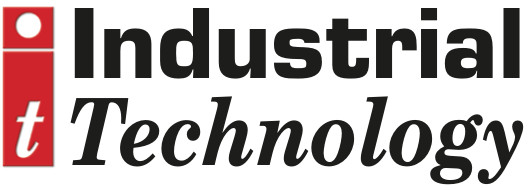
Posted to News on 20th Feb 2020, 00:00
Deep learning aids consistent product quality
Martin Gadsby, Director at Optimal Industrial Technologies, looks at how deep learning-powered process analytical technology can boost manufacturing processes.

Deep learning has the potential to revolutionise a broad range of industries by offering increasingly accurate predictive capabilities with little to no human supervision. These can have a tremendous impact on the manufacturing sector by supporting the application of process analytical technology (PAT) and its concomitant increase in process performance and product quality.
Deep learning is a highly flexible and adaptive artificial intelligence tool that, when exposed to new datasets, can increase its ability to identify patterns and classify relationships between data. This means that the larger the volume of data fed into a deep learning-generated predictive model, the higher the probability that the system will create more accurate and precise forecasts. Furthermore, the evolution of the model is automatic, ie no programming or other actions from human operators are required.
These unique capabilities are enabled by artificial neural network (ANN) architectures that mimic the human brain. ANNs are collections of interconnected artificial neurons or nodes organised in layers. Each neuron receives an input with data to analyse and automatically performs different computations on it without the need for any rule-based programming. The resulting output is then sent to another node for further processing. Every time an input is fed to the ANN, the system may be able to notice new correlations between data and implement them into its predictive model. An extremely advanced ANN may even be able to find out interdependencies that are not known to human experts, thus delivering forecasts with unprecedented accuracy.
Deep learning’s abilities make the technology a potentially powerful ally for manufacturing industries that adopted Quality by Design (QbD) strategies and PAT. These two operational process methodologies rely heavily on in-depth process understanding in order to maximise the efficiency of the overall production process. In fact, knowing how critical process parameters (CPPs) affect products’ critical quality attributes (CQAs) is essential in order to control the different processes in real-time and obtain products that meet elevated quality standards.
The relationships between CPPs and CQAs are assessed by means of multivariate analysis (MVA) and chemometrics, ie by using mathematical and statistical procedures to extract relevant information from the in-line PAT-led measurements on the product’s chemical and physical make-up.
When deep learning is applied to PAT, it is not only possible to simplify the creation of a predictive algorithm, as no coding is required, but the resulting model could also improve as manufacturing plants develop more and more products. As larger volumes of process and quality data are generated, the system can use them to determine additional, less obvious connections between data. As a result, industries can build a futureproof processing unit that continuously upgrades process efficiency and product quality without the need to re-programme the modelling algorithm.
As this technology becomes established, PAT knowledge management platforms take on a more important role. As larger volumes of data are being generated and ANNs analyse them without offering any insight into their prediction generation process, it is important for manufacturers to have a clear overview of what is happening on the factory floor, what the real-time multi- and uni-variate data looks like, and how the ANN models are evolving.
Therefore, by implementing a PAT knowledge manager, it is possible to monitor and respond quickly to the presence of anomalies or when the predictive model is ceasing to represent the input data, ie ANNs have identified correlations that are not relevant or unrealistic.
One of the most advanced PAT knowledge management platforms on the market is Optimal’s synTQ, its efficacy having been proven worldwide by several of the world’s largest pharmaceutical and life-science organisations. By choosing a software solution like this, manufacturers can rely on a platform that is able to interact with cutting-edge technologies and methods, such as deep learning, as soon as they are available. In addition, synTQ offers a robust and user-friendly interface to keep both product development and scale-up production organised at all times. In this way, manufacturers can remain in control as they improve plant efficiency, product quality and consistency.
As deep learning applications gain popularity in quality prediction, offering a unique tool to boost competitiveness, PAT knowledge management software products like synTQ can provide the key to successfully implementing these strategies and driving productivity.
Optimal Industrial Automation Ltd
Goodrich Close
Westerleigh Business Park
BS37 5YT
UNITED KINGDOM
44 1454 333222








